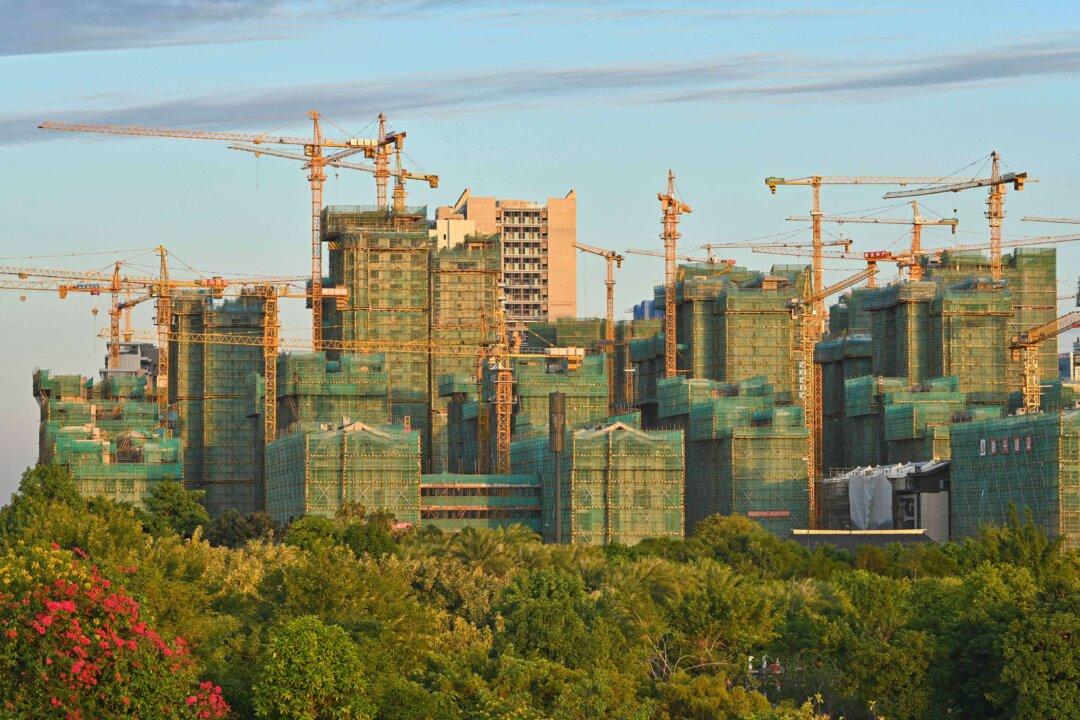The global economy has been waiting for China’s post-COVID economic boom, but that has not materialized. And the opposite could well be playing out, with analysts saying this serves as yet another reminder for Canada to wean itself off China.
At issue is China’s bloated property market, which by some estimates makes up over 25 percent of the country’s economy. At risk are commodity prices, which had been given a long-term boost from China’s real estate overbuilding.
CIBC chief economist Avery Shenfeld told The Epoch Times on Aug. 23 that a property market crash “could potentially impact China’s demand for raw materials, with a spillover to the prices for some of Canada’s resource exports.”
But he also pointed out that a slowdown in exports would be helpful for Canada in getting its elevated inflation to move lower and reduce the need for higher interest rates.
Carleton University business professor Ian Lee, who taught MBA and executive MBA programs in China and Hong Kong for several years, says he’s “very pessimistic” about China’s future and believes it will become less economically relevant over time.
Two reasons are emerging for Canada to decouple from China.
In addition to China’s economic fragility and dubious longer-term prospects, Mr. Lee says what will primarily compel Canada to decouple from China is a desire to not “risk angering” the United States.
“To the extent that we have to decouple in higher tech, more sensitive industries, it’s not going to be driven so much by the increasingly dire economic situation of China. I think it’s going to be driven by the fact that if we don’t decouple from China in sensitive areas, we’re going to be increasingly alienated from the United States,” Mr. Lee said in an Aug. 24 interview.
Flagging Chinese Demand
While central banks in Canada and the United States have been raising rates aggressively to tame inflation, in China the situation is quite the opposite where the central bank has been cutting rates to prop up the economy and stimulate demand.
The Chinese authorities are urging their banks to increase lending to bolster the economy but, Bloomberg reported that in July, banks lent the smallest amount of monthly loans since 2009, which is another suggestion of weak demand in the economy.
Both exports and imports for China are falling, and Chinese stocks (CSI 300) fell to a nine-month low on Aug. 21, when markets reacted unfavourably to the smaller-than-expected stimulus from the Chinese central bank.
China’s currency is trading near its lowest levels since 2007, and youth unemployment in the centrally planned economy is at its highest in recent history. Chinese authorities have stopped reporting on this employment data.
Mr. Lee also notes that one of China’s many structural problems is its aging population, which actually declined in 2022.





